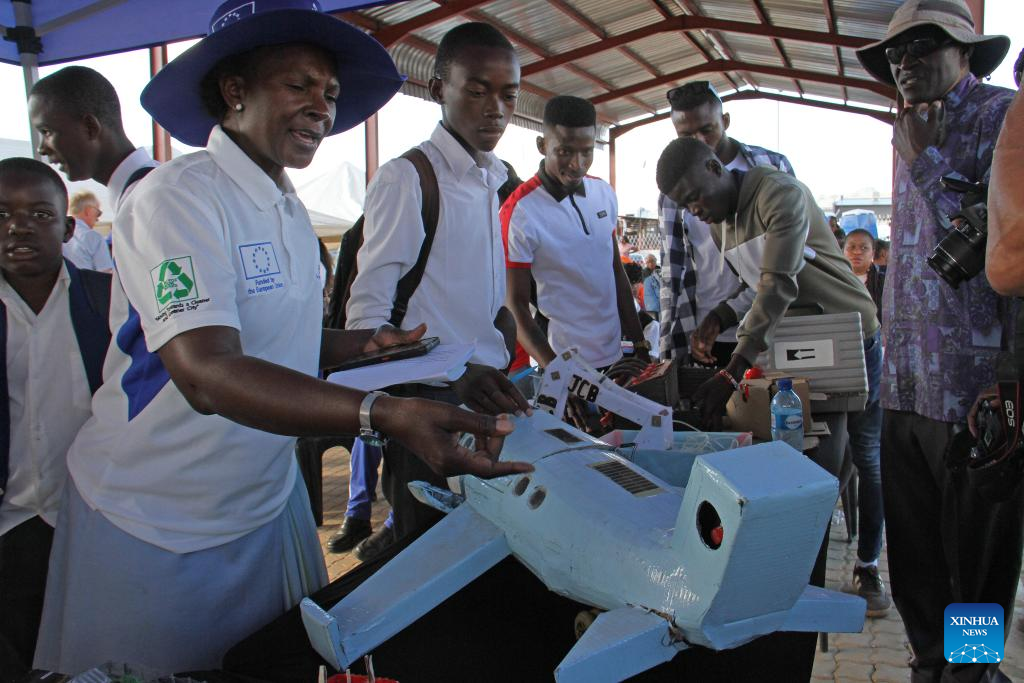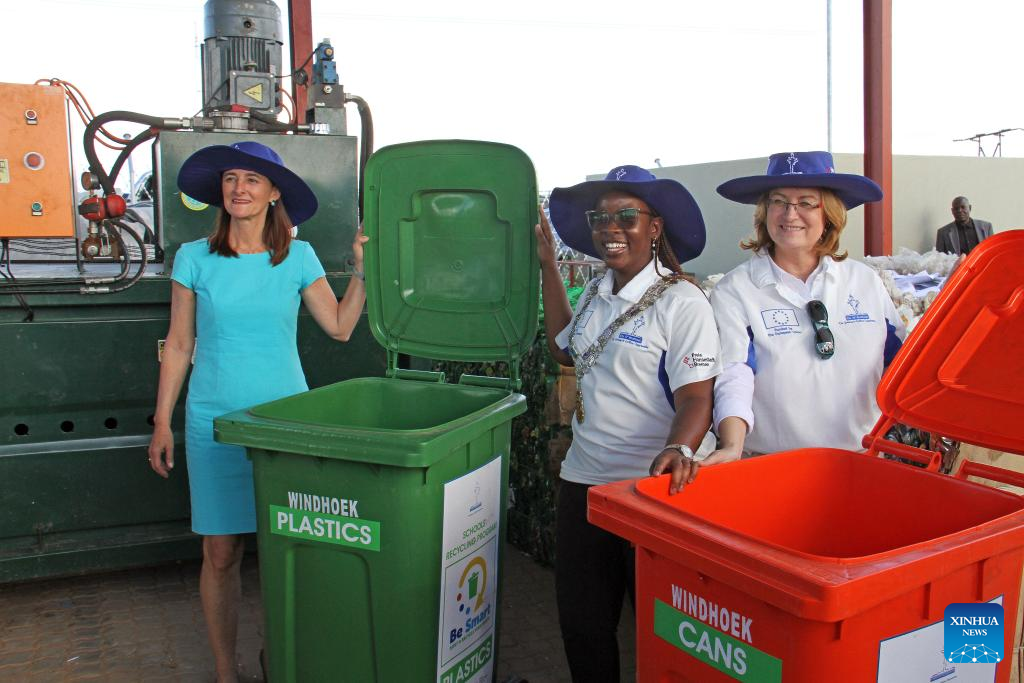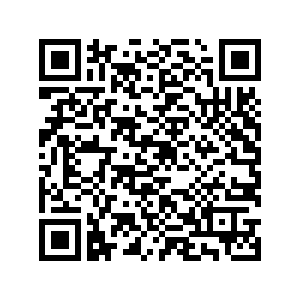
Students display products made from recycled materials during an inauguration ceremony of a waste buyback center in Windhoek, Namibia, on April 12, 2024. Namibia on Friday inaugurated its first waste buyback center (WBBC) which will see residents earn income by collecting and selling recyclable materials at an event held in the informal settlement of Katutura in Windhoek. (Photo by Musa C Kaseke/Xinhua)
WINDHOEK, April 12 (Xinhua) -- Namibia on Friday inaugurated its first waste buyback center (WBBC) which will see residents earn income by collecting and selling recyclable materials at an event held in the informal settlement of Katutura in Windhoek, the Namibian capital.
Established under the project "Improving Solid Waste Management in Windhoek," financed by the European Union and implemented jointly with the Free Hanseatic City of Bremen, the WBBC is to reduce waste volumes, minimize harmful environmental effects, promote recycling, and create job opportunities through startup incubation focusing on waste reengineering.
During the inauguration ceremony, Queen Kamati, the mayor of Windhoek, highlighted the center's significance beyond its physical presence. She emphasized its role in advancing environmental stewardship, economic empowerment, and community development.
"The establishment of this facility is also in alignment with the objectives outlined in the 2018 national waste management strategy, which seeks to position Namibia as a leader in Africa in terms of solid waste management standards by 2028, with a subsequent focus on waste reduction and achieving zero waste to landfill," she added.
Ana-Beatriz, ambassador of the European Union to Namibia, highlighted the project's funding of 2.2 million euros (about 2.34 million U.S. dollars) launched in 2020 for four years.
She emphasized its objective to transition Namibia towards a more sustainable model known as a "circular economy," particularly focusing on Windhoek as a pilot project. Additionally, the project aims to mitigate environmental harm and promote growth through waste recycling.
Stellio Tsauseb, acting chief engineer for the City of Windhoek, outlined the waste management process, emphasizing the need for waste separation. He explained that different types of waste, such as aluminum, polyethylene terephthalate (PET), and paper, must be separated for efficient recycling.
"This separation ensures cleanliness and allows for accurate weighing of each waste type," he said while mentioning that individuals bringing recyclable materials may receive payments in cash or coupons.
"These coupons can be redeemed at retail partners for various items, including food. This payment process aims to incentivize recycling efforts and streamline waste management in Windhoek," he said.
A second waste buyback center is set to be established after the pilot's successful conclusion with more centers expected to be established across the southwestern African nation. ■

People attend an inauguration ceremony of a waste buyback center in Windhoek, Namibia, on April 12, 2024. Namibia on Friday inaugurated its first waste buyback center (WBBC) which will see residents earn income by collecting and selling recyclable materials at an event held in the informal settlement of Katutura in Windhoek. (Photo by Musa C Kaseke/Xinhua)
